Week 2 in Nepal – Sickness, the IOM, and Circus Kathmandu!
The first thing I noticed about the gym were the waxy, weathered floorboards… countless feet had run, jumped, spun, and danced here before mine. With each step, a subtle creak reminded us of the age of the space, the afternoons spent here that belong to strangers we would never know. The second thing I noticed was the heat- it hung like a shawl above us, reminding me that I need to stop expecting to be blasted by crisp AC wherever I go. We were ushered into the space by BJ L, the founder of Circus Kathmandu, and by two of it’s talented performers, Sheetal and Saraswati. My peers and I all found seats on benches that had been dragged into a semi-circle towards one side of the gym. and we eagerly awaited an introduction from our hosts.
BJ L welcomed us and quietly began to tell us his story. I had to lean in with my elbows on my knees to catch each of his softspoken words. He explained that he had grown up in a poor, rural community in Nepal in a family with multiple children. One day, when BJ L was eight, a man from India came to his village, singled out his parents, and promised them that if they sent BJ L with him, he would be able to provide English education, quality housing, and ample nutrition for their son- things that his parents were struggling to provide due to their economic circumstances. English education especially is an expensive and valuable commodity that is very hard to come by in poor communities. His parents agreed, and BJ L went with him and a few other children to India. Unfortunately, the reality that awaited them was a far cry from what had been promised. The man sold BJ L and the others to an Indian circus, and for four years that is all that BJ L knew. He became friends with a few of the other children that had been trafficked, and together they found the strength to endure the inhumane conditions they faced every day. Eventually, BJ L and the others were rescued by a humanitarian organization and he was returned home to his family. By then, he was a stranger to them- his parents did not recognize him at first, nor did he recognize them.
BJ L’s story is reflective of all of the stories of the staff and performers of Circus Kathmandu. Sheetal and Saraswati had also both survived human trafficking, and they listened quietly and looked at the floor while BJ L spoke. BJ L founded Circus Kathmandu in 2010 for the sake of showcasing beautiful human talent and dignity as well as to raise awareness and create social change around the issues of human trafficking and women’s health and equality in Nepal and around the world. Circus Kathmandu works with many local and international NGOs as advocates and workshop leaders,
BJ L then said, “But we are not here today just to focus on sad things. We may have sad stories, but today we are here to teach you and have fun.” And with that, music began playing and everyone rose and formed a circle. We each took turns running into the center of the circle and trying our best to choreograph a dance for everyone else to follow- it was HILARIOUS. The shift from sorrow to joy was so profound, so palpable- and it was all thanks to community, music, and dancing. We went on to play lots of other goofy games with BJ L and his team before they finally split us into groups to try to give us some circus skills. We were given crash courses on how to do circus tricks with hula hoops, how to juggle, and how to do some basic tricks on aerial silks- by far my favorite of the three activities. There is something about being suspended in mid-air with pointed toes and outstretched arms that makes you feel like you are flying! Our instructor Sheetal, who is a professional aerial artist, was very patient and gracious with us as we tried to replicate her strength and fluidity on the silks.
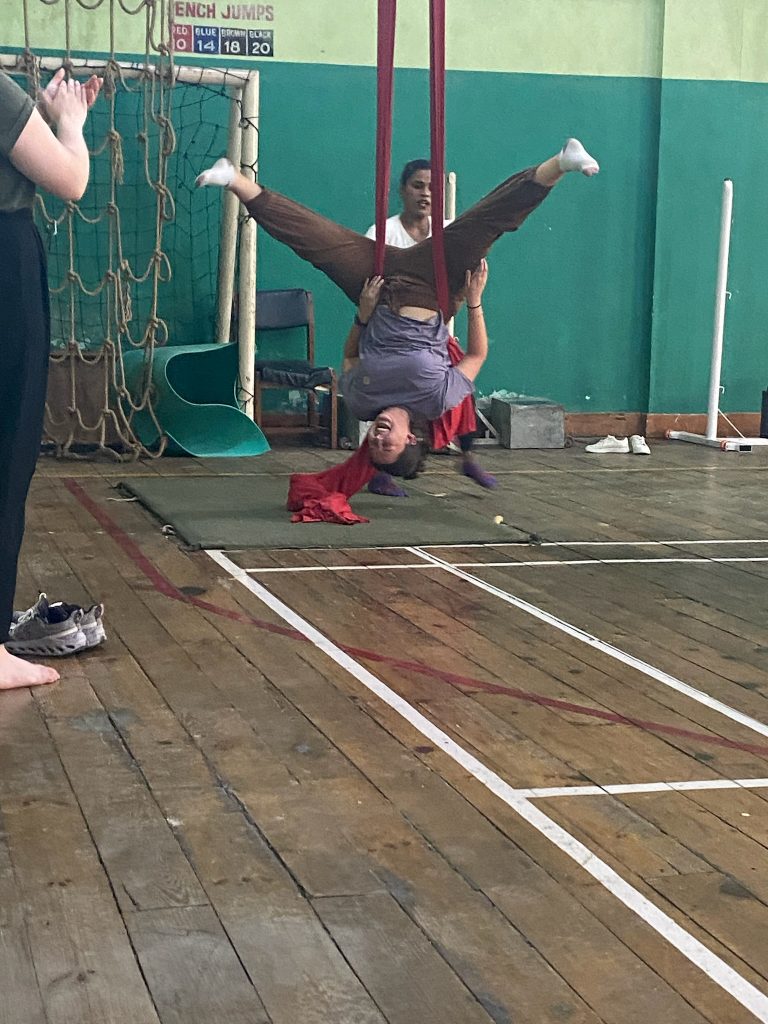
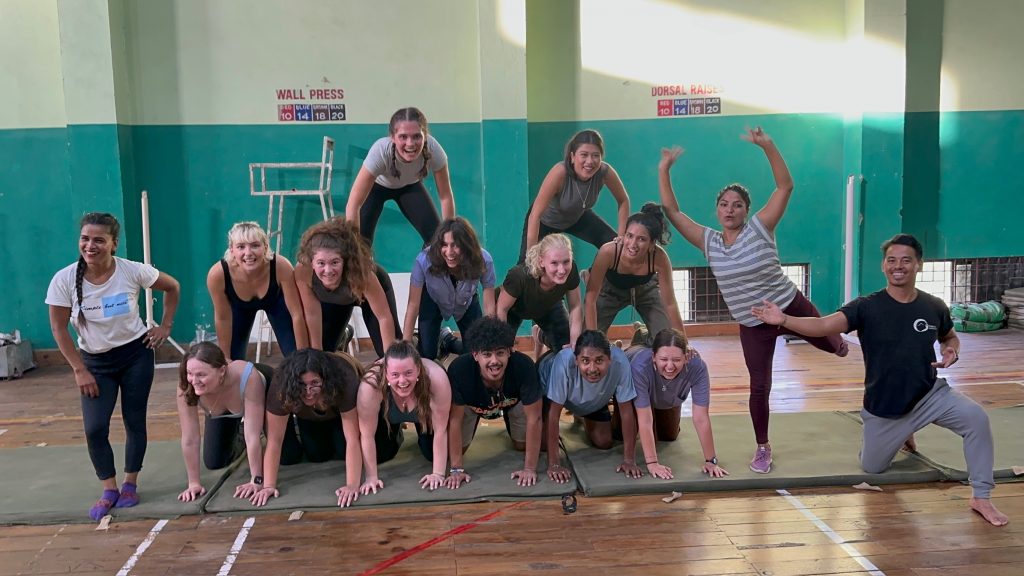
– – – – – – – – – – – – – – – – – – – – – – – – – – – – – – – – – –
Unfortunately, another rousing event that took place this past week was a terrible bout of food poisoning for me. As I laid in bed after dinner on Sunday night, I got that gross, impending-doom feeling that something was very much wrong with my stomach. By the time that 5 am rolled around, I had puked eight times and probably slept an hour total. Luckily, our program coordinators Krishna, Laboni, and Nirvana were at the ready Monday morning to help get myself and a few other students to the clinic- over the course of the week, many of my peers started dropping like flies with various ailments, so the clinic trips became routine for our team.
The best part about being sick was the motorcycle ride. Technically, riding on motorcycles is a “forbidden activity” for SIT students… but dire times call for drastic measures (mwa ha ha!). After puking one more time for good measure, Krishna picked me up and plopped me down on the bike behind him. He lowered the rider foot pedals and instructed me NOT TO TAKE MY FEET OFF OF THEM. He was about to take off when, at the last moment, he stopped the bike and started rummaging through his bag. “Here,” he said. “Can’t forget this!” He winked and handed me a blue baseball cap. I immediately started laughing. “Is this my helmet?” I asked. He said, “Yup!” And with that we took off, tearing through the ancient streets of Patan. Other bikes, brightly-clothed pedestrians, moving carts piled high with irregular pieces of lumber or bright green vegetables blurred past as as Krishna expertly maneuvered through the dynamic chaos of the Patan alleys. The wind felt SO good on my face… I grinned wildly in the rearview mirror which made Krishna laugh. He shouted over the wind, “I’m going to have to convince Yanik that this wasn’t your master plan all along!”
When we pulled into the clinic, reality resumed too soon. The ride had made me dizzy, and the heat was oppressive. Luckily, Nirvana greeted us there with water and led us into the vast, air-conditioned lobby. The hospital was luxurious, and Nirvana warned us that while the doctors first priority was to help us get better, they were also motivated to make as much money off us as they could while doing so. “You do not have to stay the night if you don’t want to. Don’t let them make you think that you are on death’s door just so that you end up here for a few more hours!” For me, it wasn’t fear mongering that made me want to stay… it was the ridiculously comfortable beds and the cool, quiet room they took me to. After giving blood and taking some anti-nausea meds, I slipped into a merciful, heavenly sleep in my quiet corner. When the doctors awoke me and said that I would not need to be rehydrated with IV’s, I was at once relieved and disappointed. It was time to leave this strange paradise and go home. Nirvana called me a cab and I bumped and jostled my way back to my homestay, where my host dad and sister were waiting to help me get situated in my room. They were so, so kind to me, as they always are, and they made sure I had water and crackers and as much air circulation as possible in our small room. When I returned to school the next day, I credited the motorcycle ride as what had cured me.
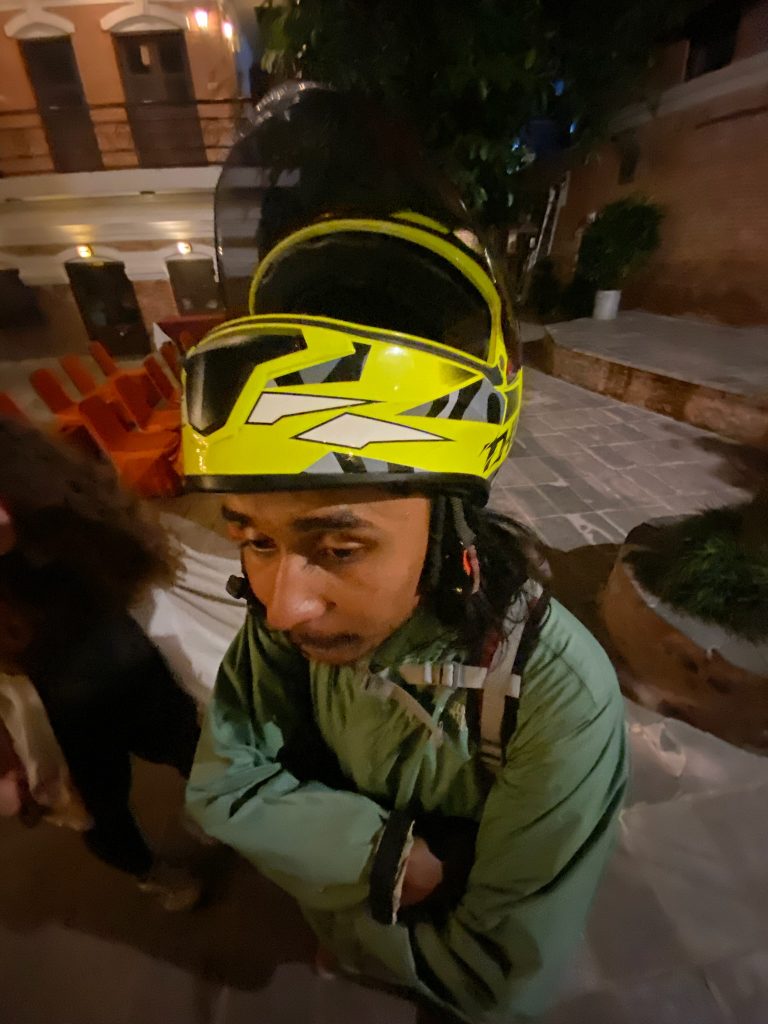
– – – – – – – – – – – – – – – – – – – – – – – – – – – – – – – – – –
I have much, much work to catch up on after the few days that it took for me to regain my full energy and brainpower, so I will write about just one more place that our whole student group visited this week. Two days after my bout of sickness, my peers and I all piled into a van and went to visit the International Office of Migration in Nepal- a special branch of the U.N. that has an office in almost every country all over the world. The IOM is an INGO that “promotes humane and orderly migration for the benefit of all… by providing services and advice to migrants and governments.” Before we arrived, I had assumed that the IOM would focus on serving both migrants and refugees in terms of labor migration, resettlement, and with the intake and care of both vulnerable populations. But when we began listening to our speaker’s presentations, we were informed that IOM Nepal focuses solely on the process of moving people through Nepal, and on providing for the needs of migrants during that specific, transient period. Apparently refugees and asylum seekers are the responsibility of the UNHCR (United Nations High Commissioner for Refugees) in Nepal.
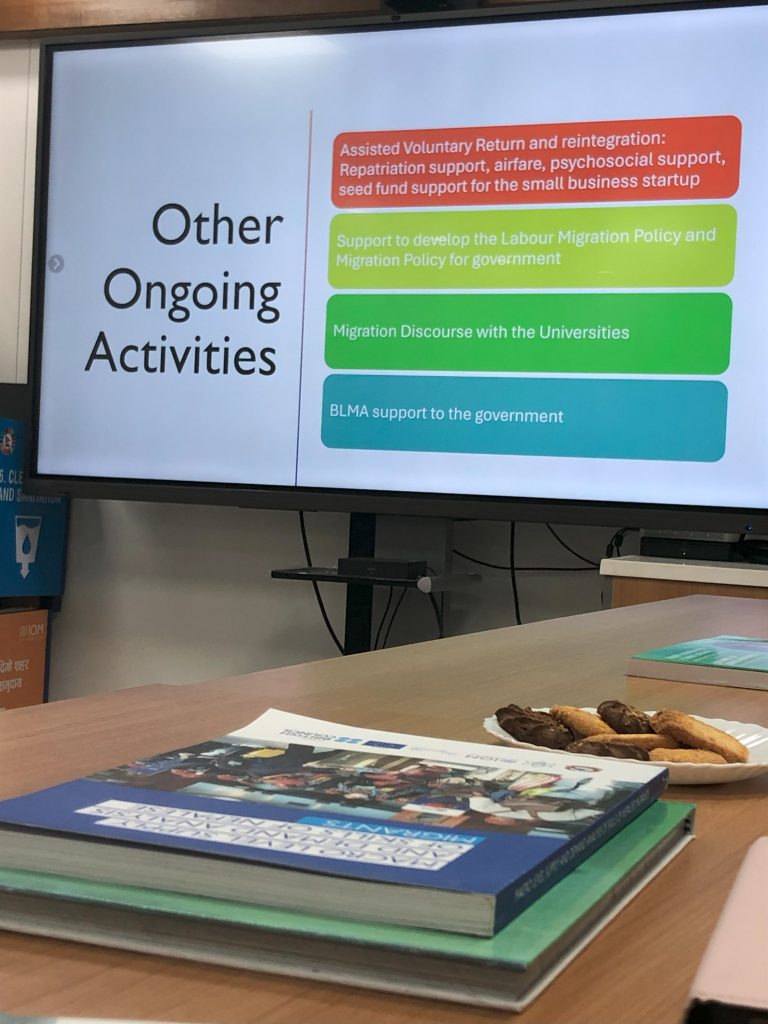
The first two floors of the IOM building smell like rubbing alcohol and look exactly like a hospital- performing health screenings and treating the medical conditions of migrants leaving Nepal are some of the IOM’s biggest priorities. The IOM works with nations in Europe, the U.S, Australia, New Zealand, and a few others to coordinate resettlement plans for documented Bhutanese, Middle-Eastern, Nepalese, etc. migrants that are in search of better lives. The key word here is documented- the status of being documented/undocumented makes all the difference in the kinds of resources that the IOM provides to migrants in Nepal. Documented migrants are given places to stay, basic healthcare, access to food pantries, and designated staff to help them plan their journeys and destinations. Undocumented migrants, however, are not legally eligible for IOM assistance, which creates a host of human rights issues for them. Based on our conversation, it was unclear as to whether the IOM or the UNHCR are able to provide any kind of direct aid to undocumented migrants, or whether this responsibility falls squarely on the shoulders of NGOs in Nepal. Either way, it seems problematic that such a large and vulnerable population of people in Nepal face such a dearth of resources and access to social services simply due to the status of their papers.
– – – – – – – – – – – – – – – – – – – – – – – – – – – – – – – – – –
This coming week, I will be traveling to the Terai region of Nepal! Specifically, our cohort will be going to Chitwan, a rural province of Nepal where rhinos roam and where tourism and development have created many environmental, social, cultural, and economic struggles and complexities. We will be speaking with two local NGOs in the community, one that serves and advocates for female survivors of domestic violence in the surrounding community (the problems created by the patriarchy and by gender-based-violence and power exist all over the world), and one that serves and advocates for foreign labor migrants and their families, who depend on the remittances that they send home. It will be such an honor and a privilege to see another side of life here in Nepal, and to have the opportunity to connect with members of a community that is so different from any other I have ever been a part of. I am very excited… stay tuned for more next week!
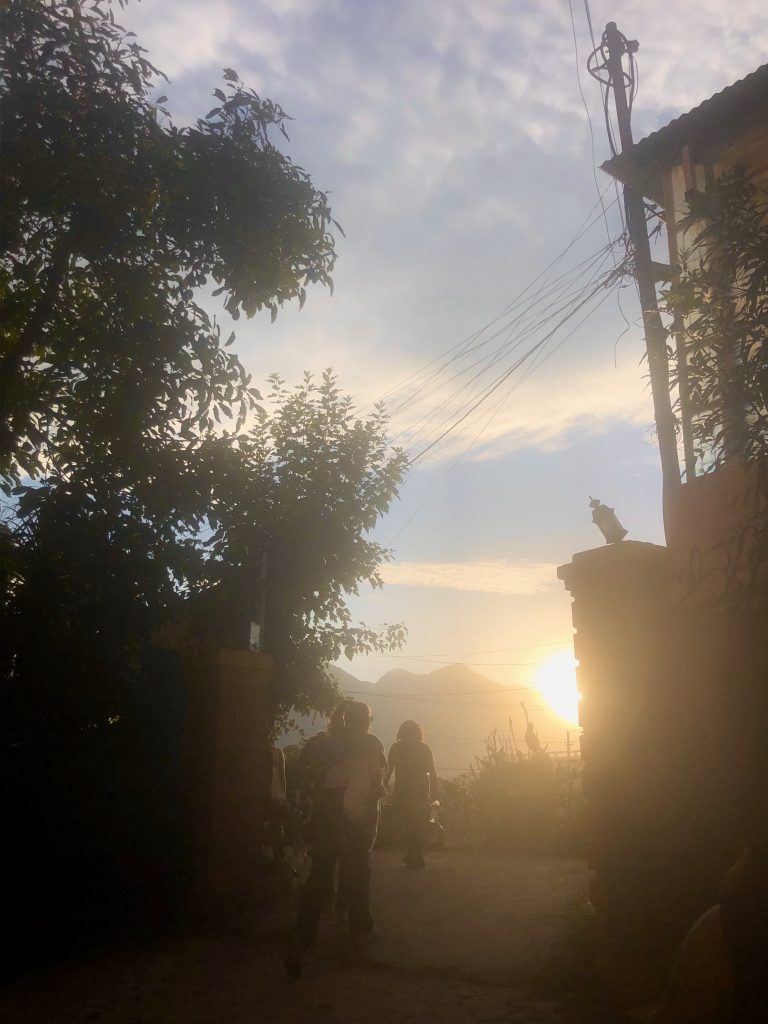
September 22, 2024
Comments are closed.